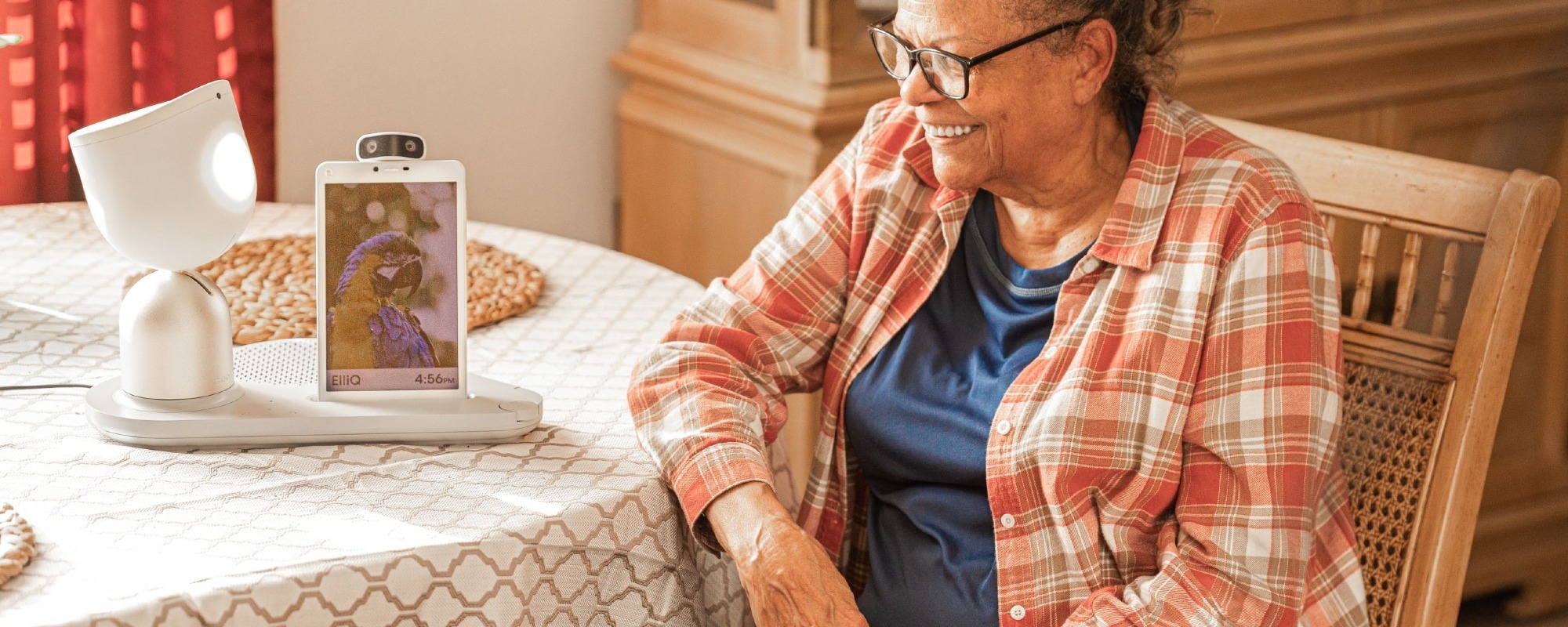
Companion robots, like the ElliQ featured above, may one day help lonely adults feel more socially connected. Image Credit: Gustavo Intuition Robotics
It also suggests a fresh way to gauge how helpful a companion robot is.
Right now, all the evidence points to having a real friend as the best solution. But until society prioritizes social connectedness and eldercare, robots are a solution for the millions of isolated people who have no other solutions.
Murali Doraiswamy, MBBS, FRCP, Professor, Psychiatry and Geriatrics, Duke University
According to the Survey Center on American Life, the proportion of Americans without close friends has doubled since 1990. A third of the world’s population may be affected by rising levels of social isolation and loneliness, which have major negative effects on health, including an increased risk for mental illness, obesity, dementia, and early mortality.
According to US Surgeon General Vivek H. Murthy, MD, loneliness could be just as harmful to one’s health as smoking cigarettes.
Making a companion robot to accompany socially isolated older persons could prove to be a promising option, despite the fact that it is becoming more and more difficult to establish new friends as an adult to help combat loneliness.
AI presents exciting opportunities to give companion robots greater skills to build social connection. But we need to be careful to build in rules to ensure they are moral and trustworthy.
Elizabeth Broadbent, Ph.D., Professor, Psychological Medicine, Waipapa Taumata Rau, University of Auckland
Social robots like the ElliQ have interacted with humans thousands of times, with roughly half of those interactions being for ordinary companionship, such as company over a cup of tea or coffee.
Companion robots could help older people stay healthy and active at home, according to a growing body of studies. They could also help older people experience less stress and loneliness.
Stronger social links between humans and more recent robot generations could result from the integration of more sophisticated AI programs. Robots can converse more spontaneously and even emulate the voices of long-gone friends and family members, thanks to generative AI, such as ChatGPT, which is based on massive language models.
The authors note that the majority of doctors are also on board. According to a Sermo poll of 307 healthcare professionals in Europe and the US, 69% of doctors felt that social robots could provide companionship, ease loneliness, and possibly improve patients’ mental health. 70% of doctors agreed that insurance companies ought to pay for companion robots if they turn out to be a useful friendship enhancer. However, determining a robot’s impact is still a challenge.
This lack of measurability emphasizes the necessity of creating patient-rated outcome measures, like the one the authors are creating. The “Companion Robot Impact Scale” (Co-Bot-I-7) measures the effects of companion robots on physical health and loneliness and suggests that they could be currently working.
For instance, preliminary research from Broadbent’s group indicates that friendly androids can make people feel less stressed and even speed up the healing of minor skin wounds.
The study authors concluded, “With the right ethical guidelines we may be able to build on current work to use robots to create a healthier society.”
The authors of the study also include Samantha Boardman, MD, Mark Billinghurst, PhD, and Professor Broadbent.
Sermo and IT firms have consulted with Professor Broadbent and Dr Doraiswamy. The Co-Bot-I-7 scale was co-created by Dr Doraiswamy, Professor Broadbent, and Dr Boardman.
Journal Reference
Broadbent, E., et al. (2023) Enhancing social connectedness with companion robots using AI. Science Robotics. doi:10.1126/scirobotics.adi6347.